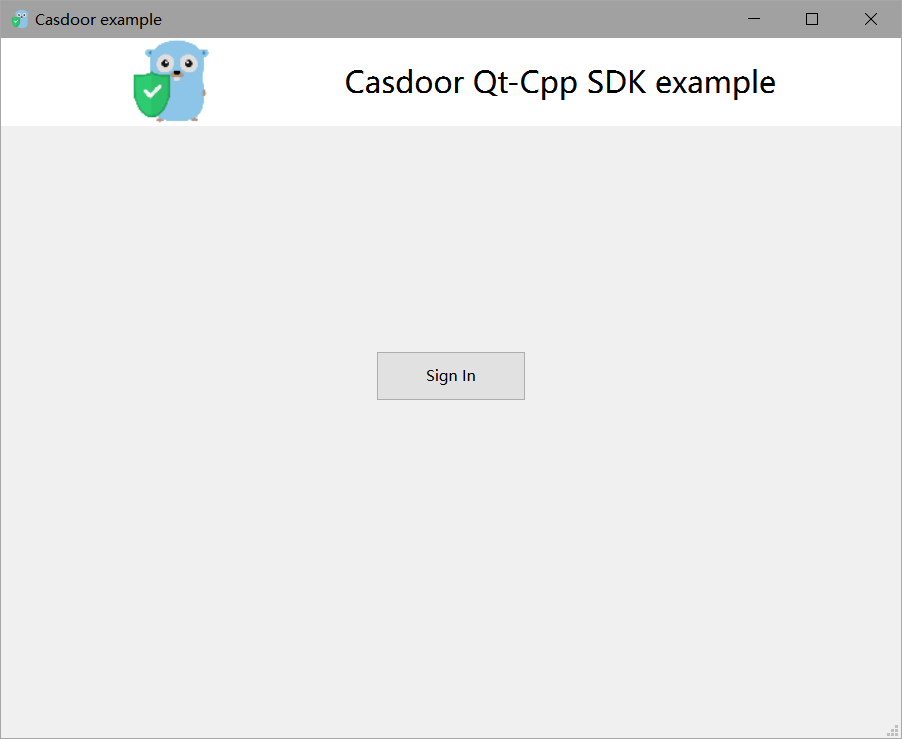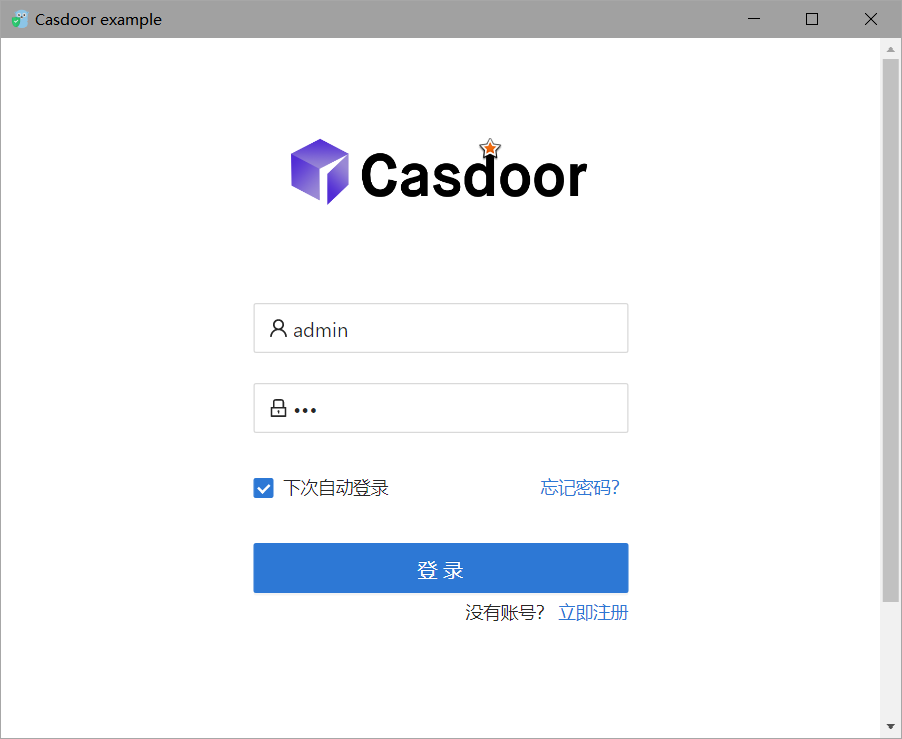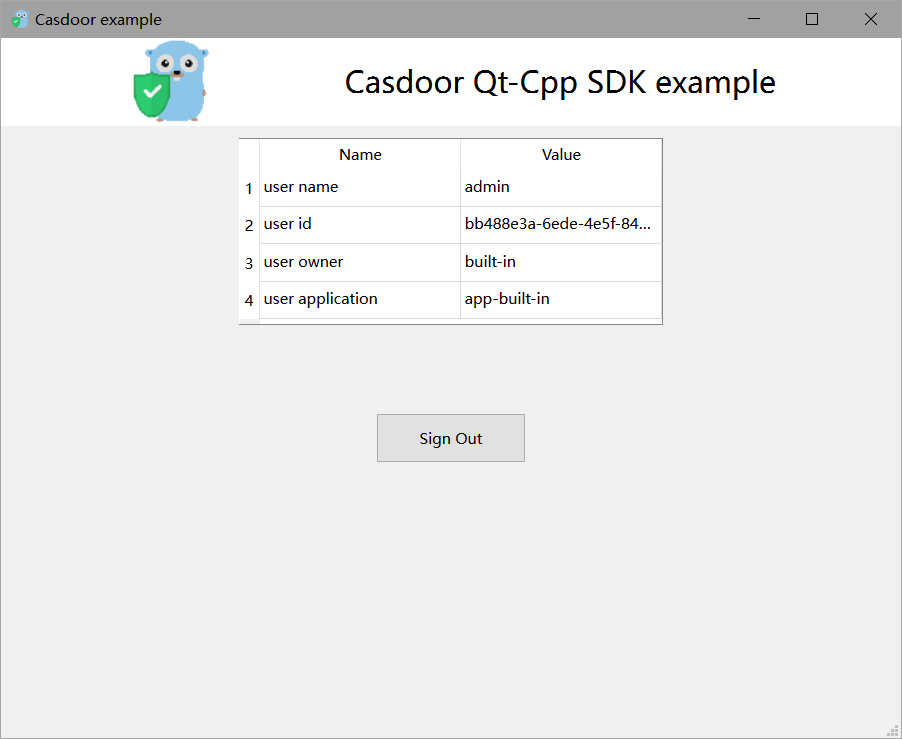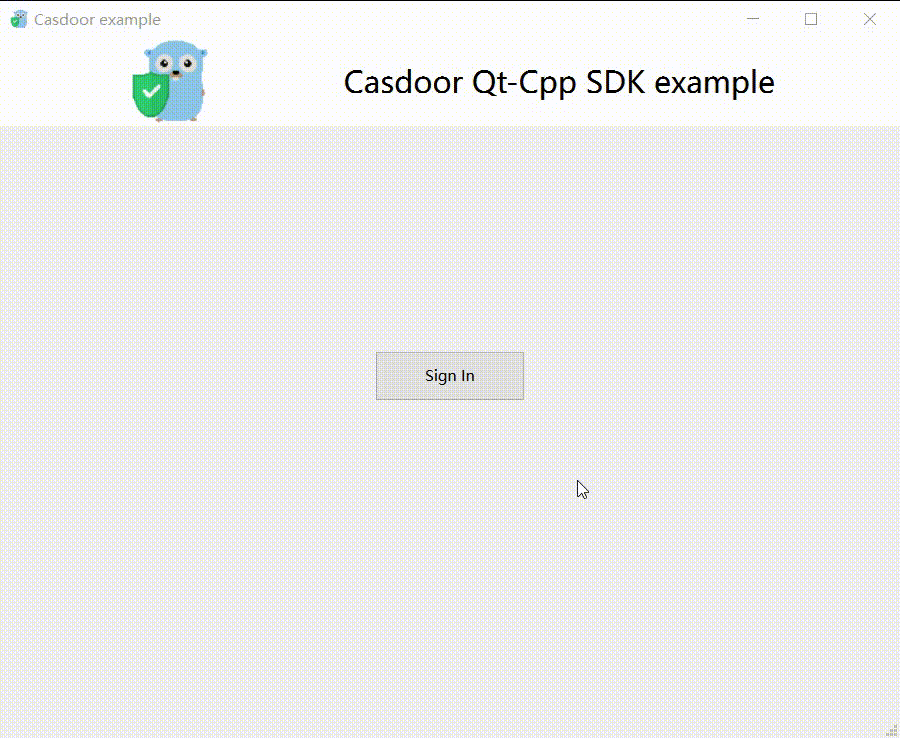Qt Desktop App
A Qt desktop app example for Casdoor.
How to Run the Example
Prerequisites
Initialization
You need to initialize 7 string parameters:
| Name | Description | File |
|---|---|---|
| endpoint | Your Casdoor server host/domain | mainwindow.h |
| client_id | The Client ID of your Casdoor application | mainwindow.h |
| client_secret | The Client Secret of your Casdoor application | mainwindow.h |
| certificate | The public key for the Casdoor application's cert | mainwindow.h |
| org_name | The name of your Casdoor organization | mainwindow.h |
| app_name | The name of your Casdoor application | mainwindow.h |
| redirect_url | The path of the callback URL for your Casdoor application, will be http://localhost:8080/callback if not provided | mainwindow.h |
If you don't set the endpoint parameter, this project will use http://localhost:8000 as the default Casdoor server.
Running the Application
Using Qt Creator
- Open
casdoor-cpp-qt-example.pro - Set the
INCLUDEPATHof OpenSSL incasdoor-cpp-qt-example.pro - Press
Ctrl + Rto start
Preview
After running this Qt desktop application, a new window will be shown on your desktop.

If you click the Sign In button, a login window will be shown on your desktop.

After a successful login, a user profile window will be shown on your desktop, displaying your user information.

You can preview the entire process in the following GIF image.

How to Integrate
Opening the Login Window
// Load and display the login page of Casdoor
m_webview->page()->load(*m_signin_url);
m_webview->show();
Listening to the Open Application Event
// Initialize the TcpServer object and listen on port 8080
m_tcpserver = new QTcpServer(this);
if (!m_tcpserver->listen(QHostAddress::LocalHost, 8080)) {
qDebug() << m_tcpserver->errorString();
close();
}
connect(m_tcpserver, SIGNAL(newConnection()), this, SLOT(on_tcp_connected()));
Using Auth Code to Get the User Info
// Get the token and parse it with the JWT library
std::string token = m_casdoor->GetOAuthToken(code.toStdString());
auto decoded = m_casdoor->ParseJwtToken(token);